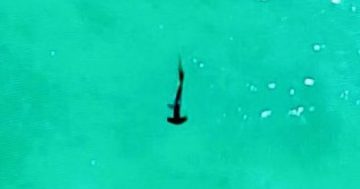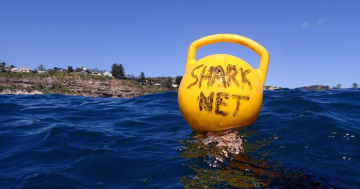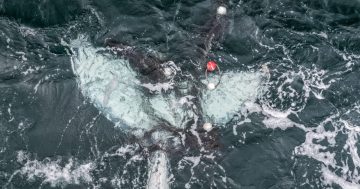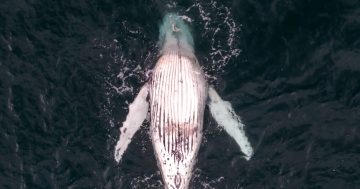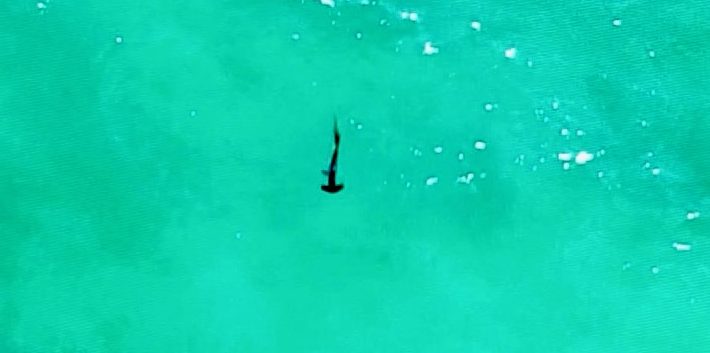
“Sharks are mellow, beautiful creatures who are generally out in the ocean doing their thing,” Cr Whittaker said. Photo: SLS Illawarra.
Wildlife advocates hope this season could be the last time shark nets are deployed on Illawarra beaches.
Wollongong City Council has opposed the use of shark nets since 2021, when the council wrote to the NSW Department of Primary Industries (DPI) to request a review of the practice.
Sutherland Council recently voted to oppose the nets in an annual NSW Government survey.
At Sutherland Council’s meeting, Mayor Jack Boyd indicated he would like NSW National Parks to take responsibility for the survey response for nets in the Royal National Park at Garie and Wattamolla.
Wollongong Councillor Jess Whittaker said now both councils in the Heathcote electorate opposed the use of the nets, she would seek a meeting with MP Maryanne Stuart to discuss removing them.
As a paramedic, Cr Whittaker said she had never seen a shark attack victim.
“I know paramedics who have, but it is very unusual,” she said.
“The biggest danger on our beaches is drowning and the best thing we can do is fund lifeguards and emergency responses and educate community on how they can protect themselves at the beach.
“It’s just a really old way of thinking to protect ourselves we need to kill the scary things in the ocean. We’ve moved forward a long way with our relationship with animals.
“I’ve been snorkelling and they are generally very mellow, beautiful creatures who are out in the ocean doing their thing.
“We should all avoid taking risks like swimming when big schools of bait fish are around, in rive mouths, at dawn and dusk, is a risk, but netting doesn’t protect anyone.
“The sharks can swim around them; it’s just a cull.”
The “cull” kills more than just sharks.
A spokesperson for the Humane Society International Australia, marine biologist Lawrence Chlebeck, said most of the animals killed by shark nets were stingrays, dolphins and turtles.
“The collateral damage caused by these nets is unbelievable: for every targeted shark caught last season, 17 other marine animals become entangled in the nets,” he said.
“Many of them were dead when found or would have died soon after, and what’s most upsetting is knowing just how many of those animals were threatened and protected species.”
New technology such as drones and SMART drumlines can help manage sharks, reduce attacks, and have far less impact on the environment.
In 2023 SMART drumlines caught, tagged and released 413 target sharks such as white, tiger and bull sharks.
Once tagged, the state’s 37 coastal tagged shark listening stations can track these sharks near the beaches where the device is based – with this information available to anyone with the SharkSmart app, website or on X (Twitter).
More than 2000 target sharks have been tagged over the life of the program and are monitored by listening stations.
Cr Whittaker said she hoped rolling back the shark netting program meant there would be more money left to invest in proven beach safety methods.
“The best way to save lives at the beach is to fund lifeguards,” she said.
“The next best thing we can do is educate the community and provide fast responses if there is an emergency.
“We are currently wasting a large portion of the $85 million shark smart program on nets.”









